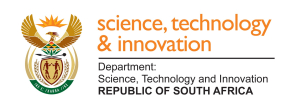Strategies & Plans
The South Africa Agency for Science and Technology Advancement (SAASTA) is a business unit of the National Research Foundation (NRF) with the mandate to advance public awareness, appreciation and engagement of science, engineering, innovation and technology in South Africa.
Science, through research, has a crucial role to play in the growth of South Africa’s economy. Active dialogue and engagement between science and society ensures that scientific research findings are easily translated into relevant, appropriate and beneficial innovation and entrepreneurial opportunities. Research findings should also have an impact on policy and social conditions in a country. This can only be achieved when science becomes a daily dialogue and discourse.
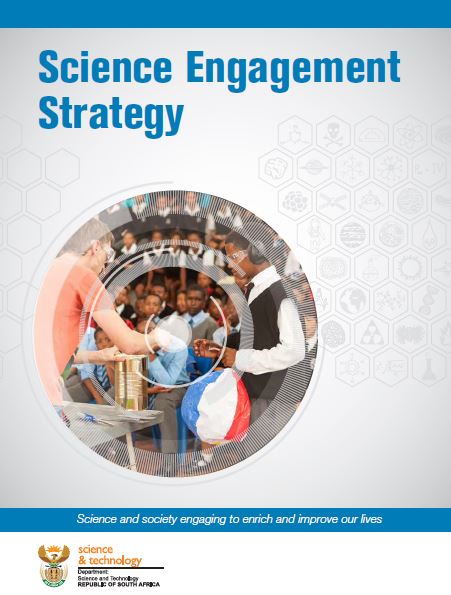
Science Engagement Strategy
The Science Engagement Strategy (SES) was approved by the Minister of Science and Technology in January 2015. The SES formalises and provides...
Download the document
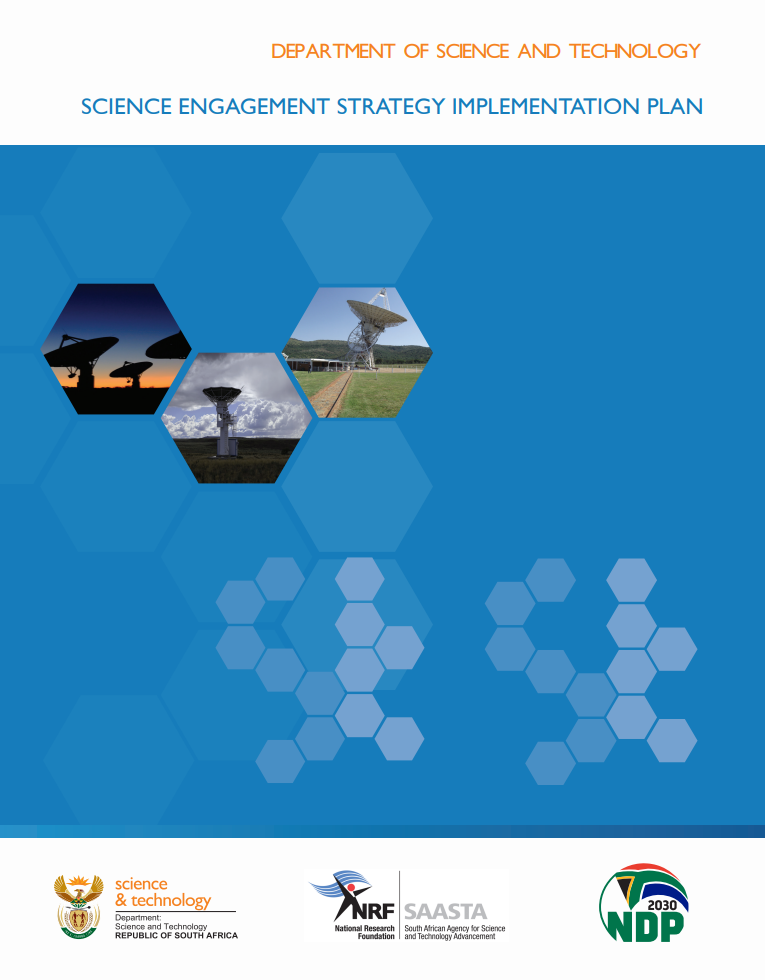
Science Engagement Strategy Implementation Plan
This document provides more detail on how the SES will be executed. The level of information provided in the Implementation Plan is adequate...
Download the document
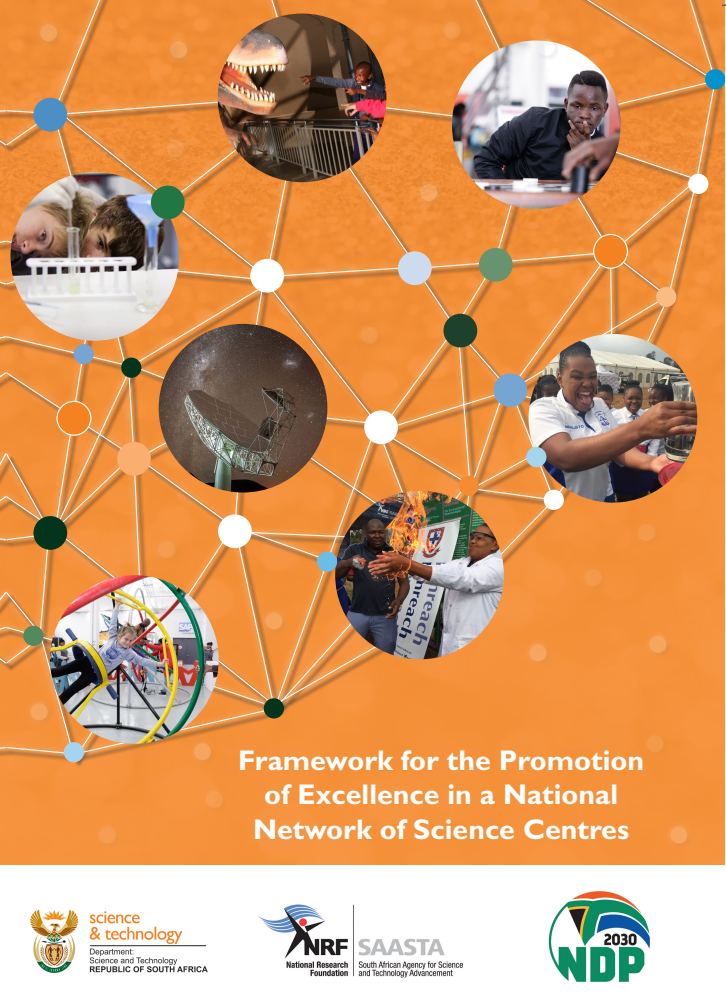
Science Centre Accreditation
Science Centre Accreditation
The White Paper on Science and Technology (1996) seeks to build a healthy National System of Innovation (NSI) that advances the ...
Download the document
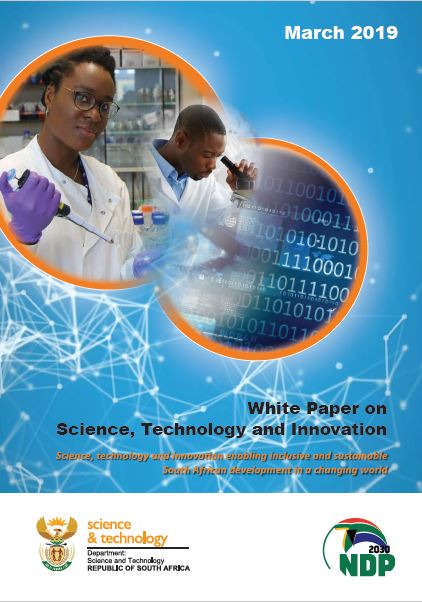
White Paper on Science, Technology and Innovation
This White Paper, which is based on extensive review of the National System of Innovation (NSI), sets the long-term policy direction...
Download the document

Monitoring and Evaluation Framework
The Department of Science and Innovation (DSI) leads the science engagement programme. This national programme, which is guided by...
Download the document
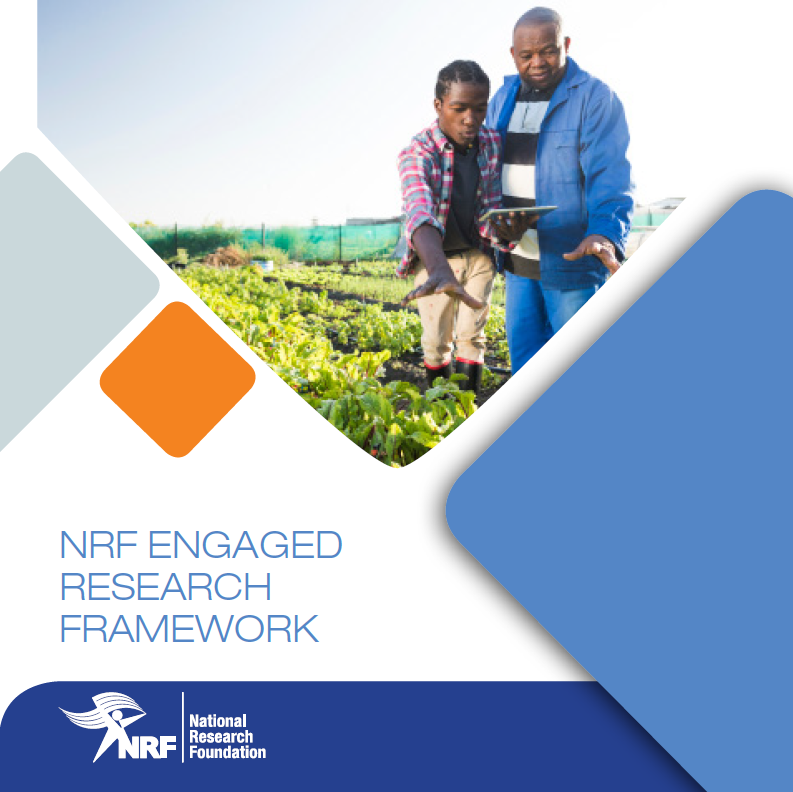
Engaged Research Framework
The NRF, within its revised mandate and vision, is committed to ensuring the clear articulation, positioning and development of Engaged Research...
Download the document

Youth Science and Technology Journalism Impact Study Report
This report presents the findings of the evaluation study of the Youth Science and Technology Journalism (YSTJ) programme.
Download the document

Nurturing Talent in SET Tracking Study Report 2021
This study aims to investigate and determine
whether SAASTA’s NSET programme has
contributed to the inflow of skills into the STEM
workforce with a focus on the participating
Education Circuits and selected schools.
Download the document

Engaged Research Booklet
The NRF’s support for embedding an engaged research approach is the result of national and international shifts in knowledge
production...
Download the document

NSO BOOKLET Participants from 2008-2012
The main aim of the competition is to identify talent, to encourage excellence in science education and to stimulate interest in the sciences. It seeks to inspire young people to consider careers in science and technology.
Download the document
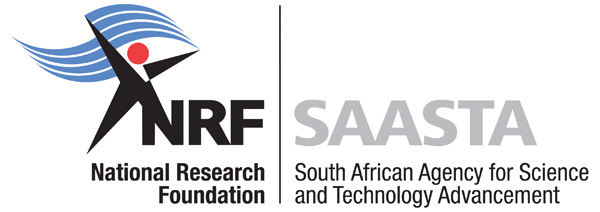
 The South Africa Agency for Science and Technology Advancement (SAASTA) is a business unit of the
The South Africa Agency for Science and Technology Advancement (SAASTA) is a business unit of the 